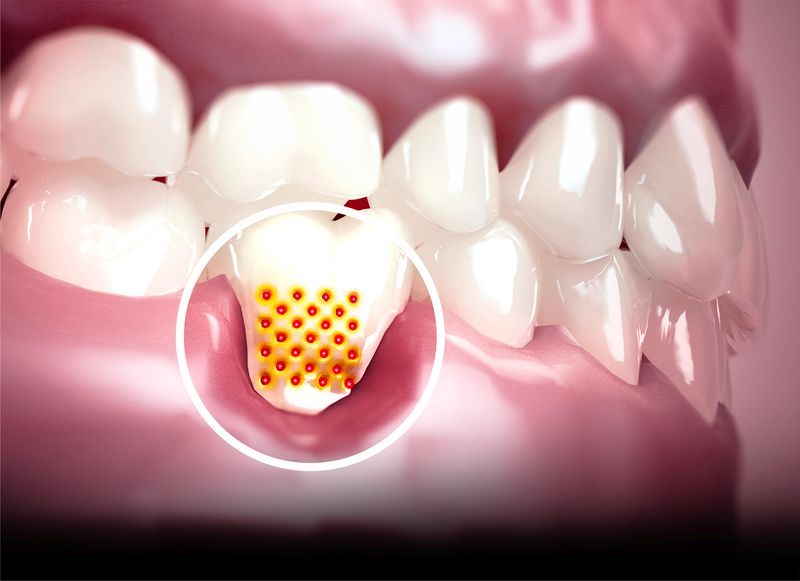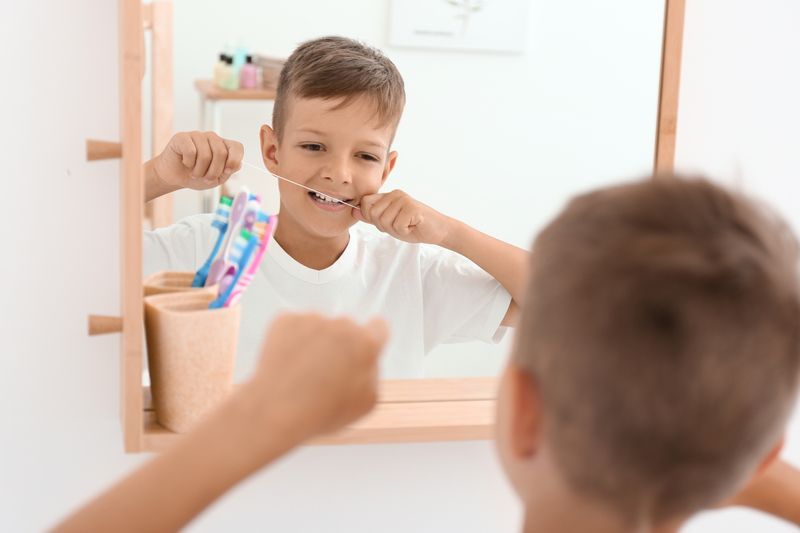Brushing Up on Basics: Effective Techniques for a Brighter Smile
Jan 08, 2024
Good oral hygiene is essential not only for a brighter smile but also for your overall health. It all starts with mastering the fundamental yet crucial art of tooth brushing – something many of us may overlook as part of our daily routine. Through proper brushing, we can prevent a host of dental problems, ensure sustained oral health, and contribute to our overall well-being.
The Role of Toothbrushing in Oral Health
Brushing diligently plays a central role in maintaining oral health. It removes the plaque that can contribute to tooth decay and gum disease, and also helps to minimize the risk of bad breath. Daily removal of this plaque is an investment in the future of your teeth and gums, ensuring they remain healthy for years to come.
Selecting the Right Toothbrush
The market offers a plethora of toothbrushes, each promising to deliver the best oral care. Yet the choice comes down to one’s personal dental needs and preferences. The bristles of a toothbrush can range from soft to hard, with most dental professionals advocating for soft bristles that are gentler on the gums and enamel. Additionally, the size and shape of the brush head should allow easy access to all surfaces of your teeth, particularly for residents in the Evanston service area who have detailed oral care needs.
The Art of Toothpaste Selection
The right toothpaste complements your brushing technique, fortifying your teeth's enamel and aiding in the prevention of decay. The majority of toothpaste formulations will contain fluoride, an ingredient recommended by dental professionals for its capacity to fight cavities. However, there are various specialty toothpastes catering to sensitivity, whitening, and tartar control. It’s essential to understand these ingredients to make an informed choice that aligns with your specific oral health objectives.
Manual Brushing Techniques
Beyond the tools, the way you brush your teeth significantly impacts the efficacy of your daily routine. Establishing proper manual brushing techniques is imperative to achieve thorough cleaning.
Proper Brushing Technique
A proven method is to aim the toothbrush at a 45-degree angle towards the gums and to use short, gentle strokes that cover the entire surface of each tooth. A common mistake is brushing too hard, which can lead to enamel damage and gum recession, hence the recommendation for a softer touch.
Optimal Brushing Duration and Frequency
To maintain oral health, two minutes of brushing time, twice daily, is the standard endorsed by dental professionals. These two minutes are crucial, providing the necessary time to meticulously clean all quadrants of the mouth and ensuring that no surface area is neglected.
Addressing Hard-to-Reach Areas
Focusing on hard-to-reach areas, such as the back molars and the gumline, is paramount. An angled brush head and a systematic pattern of brushing can facilitate the removal of plaque from these areas, often missed during a rushed or improper brushing session.
Electric Toothbrushes: Enhancing Your Routine
As oral hygiene technology advances, electric toothbrushes are becoming an increasingly popular choice for enhancing dental care routines. The convenience and advanced features they offer can make a significant impact on the effectiveness of daily brushing.
The Advantages of Going Electric
Electric toothbrushes are often praised for their superior plaque removal capabilities. A systematic review by Cochrane has shown that certain types can be more effective in reducing plaque and gingivitis compared to manual brushing. The oscillating-rotating and sonic varieties, for instance, have been shown to decrease plaque and gingivitis significantly more than manual toothbrushes in the short and long term.
Types of Electric Toothbrushes
Consumers have a range of options when selecting an electric toothbrush. Oscillating models rotate in one direction and then the other, targeting plaque with precision. Sonic toothbrushes use vibration to clean more broadly and deeply, even between teeth. Ultrasonic toothbrushes emit a wave that dislodges plaque beyond the reach of bristles. Each type has its strengths, and personal preference often dictates the choice.
Practical Considerations for Electric Toothbrush Use
When deciding whether to invest in an electric toothbrush, practical matters such as battery life, ease of use, and initial cost are critical. Despite the higher upfront cost compared to manual toothbrushes, many people in the Evanston service area appreciate the long-term benefits and convenience. The easy availability of electric toothbrushes in local stores and the guidance provided by dental professionals in the area, including operating instructions and model recommendations, make them an accessible option for those looking to upgrade their oral care routine.
Integrating Best Practices into Daily Life
Knowing the best techniques and having the right tools are just the beginning. The challenge many face is incorporating these practices into a consistent, daily routine.
Creating a Sustainable Routine
Consistency is key when it comes to oral hygiene. Brush at the same times each day to build it into your routine, and consider cues like brushing before a morning shower or after breakfast, and again in the evening as part of your wind-down ritual before sleep. This regularity helps solidify the habit.
Overcoming Common Brushing Barriers
Some individuals may find brushing regularly a challenge, whether due to tooth sensitivity, busy schedules, or limited manual dexterity. Solutions include selecting a toothpaste designed for sensitive teeth, using a two-minute timer to ensure a thorough clean even when rushed, and opting for an electric toothbrush with an ergonomic handle for those with mobility issues.
Encouraging Children to Brush Effectively
Fostering good brushing habits from a young age establishes a foundation for lifelong oral health. Make brushing fun by using toothbrushes with favorite characters, playing music for two minutes to time brushing, or turning it into a family activity where everyone brushes together. Such strategies can instill positive attitudes toward brushing and oral care in children.
Beyond Brushing: Complementing Your Oral Care Routine
Maintaining a bright smile goes beyond the toothbrush. For comprehensive oral care, it is essential to include other supportive practices.
The Importance of Flossing
Flossing is a critical complement to brushing, as it removes plaque and food particles that a toothbrush cannot reach between the teeth or under the gumline. For optimal oral health, flossing at least once a day is recommended, best done before brushing to allow fluoride toothpaste better access between teeth.
The Role of Mouthwash
Mouthwash serves as an additional cleansing agent, helping to reduce oral bacteria, freshen breath, and provide a fluoride boost for enamel strength. It's not a substitute for brushing or flossing but is useful as a supplemental measure, especially for those with a higher risk of dental caries or gum disease. Utilizing mouthwash as part of a complete dental care routine can contribute to a healthier mouth and a brighter smile.
Regular Dental Check-Ups: The Key to a Brighter Smile
While effective at-home practices are foundational, professional cleanings and expert advice from your dentist play a significant role in maintaining oral health.
Professional Cleanings and Their Impact
Even with diligent brushing and flossing, there are areas that can be difficult to keep plaque-free. A professional cleaning by a dentist or hygienist can remove accumulated plaque or tartar that regular brushing can't. This process not only contributes to the appearance of your smile but also to the overall health of your gums and teeth.
Seeking Expert Advice for Personalized Care
It's valuable to have open conversations with your dentist about your brushing techniques and oral hygiene practices. Your dentist can provide personalized recommendations to ensure your approach to oral care is as effective as possible. They may offer suggestions tailored to your unique needs, taking into account the condition of your teeth, your lifestyle, and any specific concerns you may have.
Mastering the basics of tooth brushing and integrating supportive practices like flossing and mouthwash into your routine are pivotal for a brighter smile and robust oral health. Remember to maintain consistent habits, invest in the right tools, and seek regular professional care. Through your committed efforts, the health and beauty of your smile can truly flourish.
Looking for expert guidance on mastering effective tooth brushing techniques for a brighter smile and overall oral health?
Contact your local dental care professionals today and embark on a journey towards a healthier, more radiant smile with personalized care and advice.




Join Our Elite Dental Family

©2022 Stephens Dentistry. All Rights Reserved.

